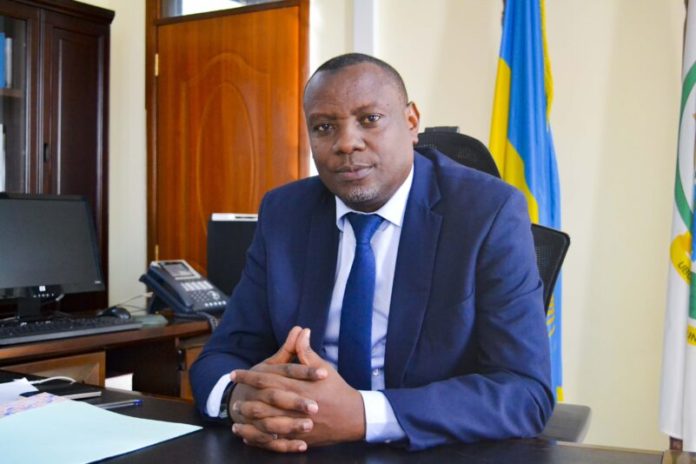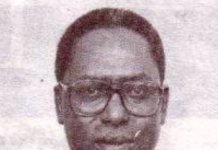By Ben Barugahare
Before the intermediate court of Nyarugenge, Dr Isaac Munyakazi, the former Minister of State for Education, was sentenced to 10 years in prison and a fine of Rwf 10 million, after being convicted of corruption and abuse of power by using a public office to serve his personal interests. He was prosecuted with a certain Gahima Abdu owner of a private school who would have corrupted him so that he fraudulently raises the rank of his school. Despite the position he was occupying which constitutes an aggravating circumstance, the High Court has handed five-year suspended sentence to the former state minister for primary and secondary education, Dr. Isaac Munyakazi and slapped him with Rwf 3 million fine while maintaining the sentences of his accomplice. The purpose of this article is to conduct a critical analysis of the ins and outs of these two verdicts.
The Nyarugenge Intermediate Court on Friday 16, slapped the former Minister of State in-charge of Primary and Secondary Education, Dr. Munyakazi who resigned in February and has since been involved in a corruption related case after he was arrested for allegedly asking for an Rwf 500, 000 bribe. The alleged bribe is said to have been from Abdou Gahima, the proprietor of Good Harvest Primary School so as to alter National School Examination results to rank the school among top 10 performers in the 2019, despite the school’s poor performance.
While appearing in the same court in September, Munyakazi and Gahima said there is no evidence to prove that this alleged act happened.
However, prosecution brought out new details and evidence showing how the bribery deal was plotted, where the involved parties met at different hotel spots in Kigali before exchanging brown envelops and shaking hands.
According to the new evidences presented, Munyakazi was believed to be the middle man who handed over the cash to one Alphonse Sebaganwa- Head of the Department of Examination, Selection and Assessment at Rwanda Education Board (REB) to manipulate the actual school positions placing Good Harvest Primary School among the top performers. During the September trial Munyakazi denied the allegations in the prosecution evidence and instead asked that the accomplice (Alphonse Sebaganwa) who informed authorities of the alleged bribery should also stand the same trial. Based on this new evidence, the court overruled possibilities of having the whistleblower in court.The Court found Dr. Munyakazi guilty based on evidence indicating his abuse of power and handed him ten years behind bars, and a Rwf 10 million court fine; his co-accused, Abdu Gahima got five years in jail and a court fine of Rwf 1.5 million, which is less or more the same as the earlier proposal by prosecution to hand him five years, and a fine of Rwf 2million. Munyakazi and his accomplice have five working days to consult with lawyers to appeal the sentence, which can be reversed, reduced, upheld, increased or cleared by another court based on the available evidence.He was accused of abusing power and being a matchmaker in bribery scandal.
Dr. Munyakazi was not presented as the court read the ruling on Wednesday 15th December 2021.He is co-accused with Abdou Gahima, a local businessman and owner of Good Harvest School, a private school located in the Kicukiro District.Nyarugenge Intermediate Court had sentenced Dr. Munyakazi for ten years and slapped him Rwf10 million fine on 16th October 2021 while Gahima was given five-year sentence and slapped Rwf2 million fine.The ruling read on Wednesday saw the sentence handed to Munyakazi reduced by half.Among others, the court rejected Gahima’s appeal and maintained his five-year jail term while the fine was reduced to Rwf 1.5 million.
The verdict from the high court reflects a Rwandan judiciary under the yoke of the executive power.
Legal framework
According to the law nº 027/2019 of 19/09/2019 relating to the criminal procedure in its articles 239 to 241, if the convicted person was not previously given another penalty of imprisonment exceeding six (6) months, the court can, through a justified order, suspend execution of all or part of the main or additional penalties imposed provided that the main penalty imposed does not exceed five (5) years. A suspended penalty is considered null and void if, within a prescribed period which is not less than one year and not more than five (5) years, the convicted person is not subsequently prosecuted and convicted of a felony or misdemeanour committed after the decision granting suspension of the enforcement of penalties has become final. Otherwise, penalties of which enforcement has been suspended and those subsequently imposed are combined and enforced. As far as effects of suspension of penalty are concerned, suspension of penalty does not prevent the payment of court fees and damages. Nor does it extend to the deprivation of rights as a result of conviction. However, deprivation of rights ceases to have effect on the date the offence becomes null and void.
Maximum penalty for misdemeanors versus minimum penalty for felonies
As specified in Article 239 of the aforementioned law, the suspension of penalty is only granted for offenses for which the sentence does not exceed 5 years’ imprisonment. Not only does the high court seem to bring the offense into the category of misdemeanors by pronouncing their maximum in favor of Dr Munyakazi Isaac when it is a felony considered its penalty but also, which seems absurd, the same court maintains the qualification of felony against his accomplice Gahima Abdu because obviously he had been sentenced to 5 years imprisonment by the TGI of Nyarugenge when his co-accused was sentenced to 10 years. Logically, the intermediate court’s decision which is partially reversed by the high court in favor of the former Minister seemed more judicious in the sense that he retained the facts committed as a felony and Dr. Munyakazi Isaac was subjected to the rigor of the law punishing the crime of corruption according to which the involvement of a high authority constitutes an aggravating circumstance as clarified below.
Infringement of the law on fighting against corruption
Article 17 of the law n° 54/2018 of 13/08/2018 on fighting against corruption dealing with aggravating circumstances for the offence of corruption committed by a person in leadership position establishes that When the acts constituting the offences referred to under Article 4 to Article 16 have been committed by a person in leadership position in public organs, private sector, in civil society and in international organizations operating in Rwanda, that leader is liable to the highest penalty for that offence. From this provision, there would be wondered why the High Court dared to infringe the law which overtly requires to severely sanction an official and resolved to grant to this high authority mitigating circumstances which seemingly entailed this suspension of his penalty. The same worry arises from why the owner of the harvest school did not benefit from the same favors and was severely treated by the high court. There should be suspected that the official exercised his influence over the court; bribes or that the regime had forgiven him and ordered the judges to overrule the previous decision.
The wolf and the lamb
The reason of the strongest is always the best, as Jean de la Fontaine established in his Fables. What is not debatable, the Rwandan justice is always confused in its judgments which border on the dependence and the influence of the executive without excluding that under this kind of pressure, our poor magistrates make ridiculous decisions that even the laymen in law noticed a lack of logic.
































































